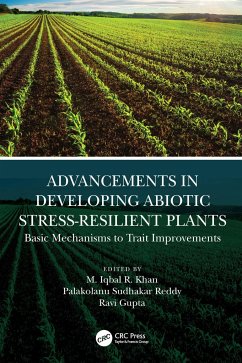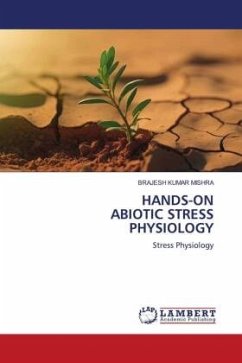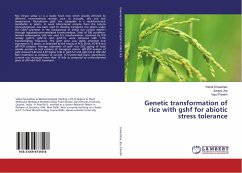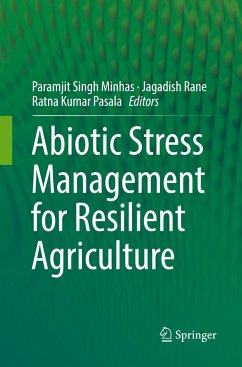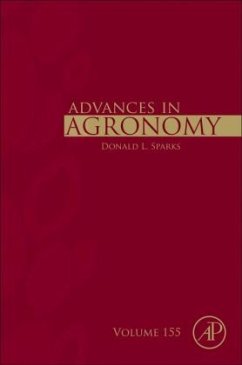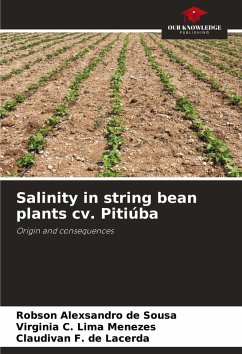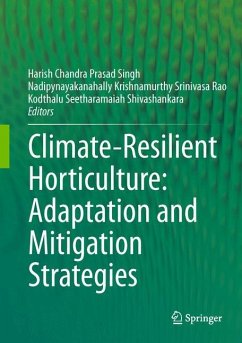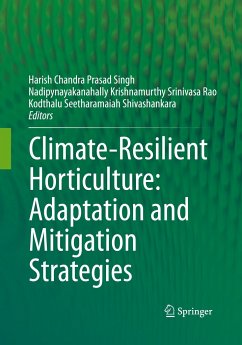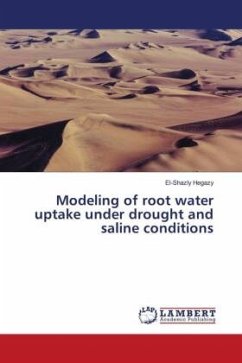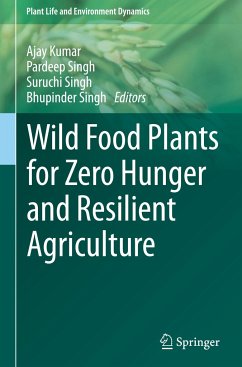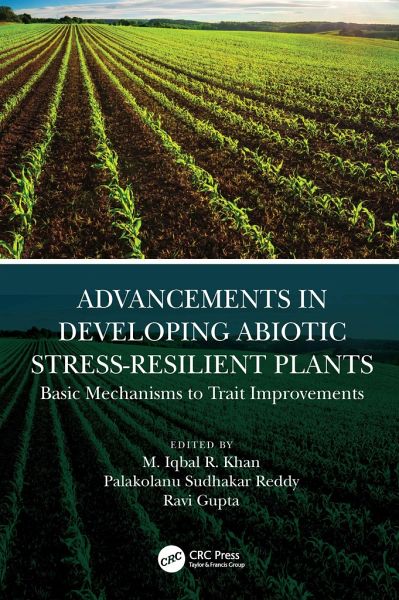
Advancements in Developing Abiotic Stress-Resilient Plants
Basic Mechanisms to Trait Improvements
Herausgegeben: R. Khan, M. Iqbal; Reddy, Palakolanu; Gupta, Ravi
Versandkostenfrei!
Versandfertig in 6-10 Tagen
61,99 €
inkl. MwSt.
Weitere Ausgaben:

PAYBACK Punkte
31 °P sammeln!
Plants often encounter abiotic stresses including drought, salinity, flooding, high/low temperatures, and metal toxicity, among others. The majority of these stresses occur simultaneously and thus limit crop production. Therefore, the need of the hour is to improve the abiotic stresses tolerance of crop plants by integrating physiology, omics, and modern breeding approaches. This book covers various aspects including (1) abiotic stress responses in plants and progress made so far in the allied areas for trait improvements, (2) integrates knowledge gained from basic physiology to advanced omics...
Plants often encounter abiotic stresses including drought, salinity, flooding, high/low temperatures, and metal toxicity, among others. The majority of these stresses occur simultaneously and thus limit crop production. Therefore, the need of the hour is to improve the abiotic stresses tolerance of crop plants by integrating physiology, omics, and modern breeding approaches. This book covers various aspects including (1) abiotic stress responses in plants and progress made so far in the allied areas for trait improvements, (2) integrates knowledge gained from basic physiology to advanced omics tools to assist new breeding technologies, and (3) discusses key genes, proteins, and metabolites or pathways for developing new crop varieties with improved tolerance traits.





